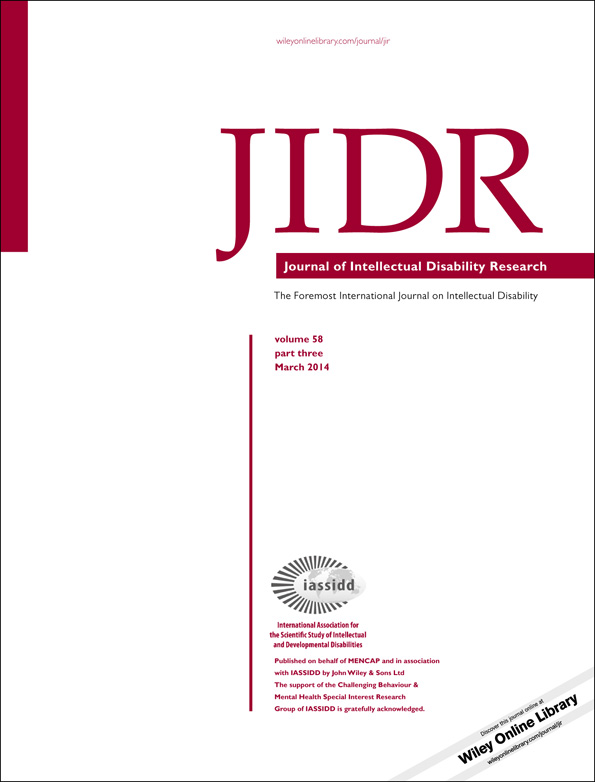Cognitive behavioural therapy for chronic pain in people with an intellectual disability: a case series using components of the Feeling Better programme
Abstract
Background
Cognitive behavioural therapy (CBT) has been shown to be effective in assisting people to cope with chronic pain. However, this approach has not been systematically evaluated with people with an intellectual disability (ID). This pilot study sought to examine the feasibility and clinical utility of CBT for people with an ID, using elements of a manualised CBT pain management programme called Feeling Better.
Method
Five people with chronic pain who were functioning within the mild range of ID received a modified, individual eight-session cognitive behavioural intervention aimed at development of pain management skills. The participants' scores on a range of measures (pain management knowledge, pain self-efficacy, use of pain coping strategies and effectiveness of coping strategies) were compared pre-intervention, post-intervention and at 1-month follow-up.
Results
The results indicated that participant scores on pain management knowledge, wellness-focused coping and effectiveness of coping increased following the intervention. However, these gains were generally not maintained at follow-up.
Conclusion
We concluded that CBT has potential utility for pain management in people with an ID, but that it requires a trial of a more intensive and prolonged intervention with the systematic involvement of care givers.




